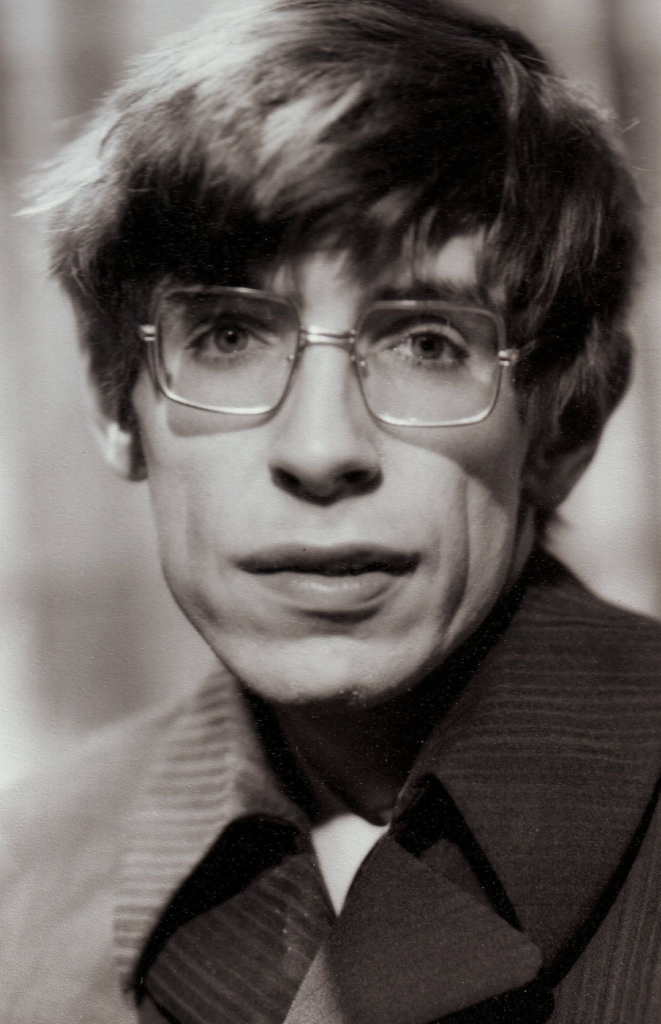Unparalleled Contributions of the World’s Greatest Scientist
Stephen Hawking the scientist: Few names shine as bright as Stephen Hawking when discussing scientific giants. With his brilliant mind and extraordinary contributions. He revolutionized our understanding of the universe and left an indelible mark on the scientific community.
Stephen Hawking’s trailblazing legacy encompasses groundbreaking research on black holes. The nature of time, and the origins of the universe. His iconic work on theoretical physics, including his best-selling book “A Brief History of Time.” Fascinated the minds of millions and brought complex scientific concepts within reach of the everyday reader.
Beyond his academic achievements, Hawking’s unwavering determination in the face of adversity sets him apart as an inspiration to us all. Diagnosed with a rare form of motor neuron disease at the age of 21. Hawking defied the odds and continued to contribute to the field of cosmology for more than five decades.
Follow us as we go into the unparalleled contributions of the world’s greatest scientist. Unravel the mysteries of the universe through Hawking’s eyes. Celebrate the enduring legacy he left behind.
Early life and education of Stephen Hawking
Stephen William Hawking was born on January 8, 1942, in Oxford, England. From an early age, it was clear that Hawking possessed an exceptional intellect. He attended the University of Oxford, where he studied physics and graduated with a first-class honors degree in 1962. It was during his time at Oxford that Hawking began to develop an interest in cosmology. The study of the origins and evolution of the universe.
Hawking went on to pursue a Ph.D. in cosmology at the University of Cambridge. Where he worked under the supervision of physicist Dennis Sciama. It was during his time at Cambridge that Hawking’s groundbreaking research on black holes began to take shape. His doctoral thesis, titled “Properties of Expanding Universes.” Explored the implications of the Big Bang theory and laid the foundation for his future work on black holes and the nature of time.
After completing his Ph.D., Hawking continued his research at the Institute of Astronomy in Cambridge. This is where he was appointed a research fellow. It was during this time that his motor neuron disease. Later diagnosed as amyotrophic lateral sclerosis (ALS), began to manifest. Despite the physical challenges he faced. Hawking remained determined to pursue his scientific endeavors. And his contributions to the field of cosmology only grew more significant.
Stephen Hawking’s breakthroughs in theoretical physics

One of Stephen Hawking’s most significant breakthroughs in theoretical physics is his discovery of Hawking radiation. In 1974, Hawking proposed that black holes are not entirely black. But emit small amounts of thermal radiation due to quantum effects near the event horizon. This groundbreaking theory challenged the prevailing notion. That nothing could escape the gravitational pull of a black hole. Hawking’s work on Hawking radiation revolutionized our understanding of black holes and their behavior.
Hawking’s research on black holes also led to the development of black hole thermodynamics. He showed that black holes have properties analogous to thermodynamic systems, such as temperature and entropy. This groundbreaking insight provided a deeper understanding of the relationship between gravity, thermodynamics, and quantum mechanics.
In addition to his work on black holes, Hawking made significant contributions to our understanding of the nature of time. His research on the arrow of time and the concept of a singularity in the early universe shed light on spacetime’s fundamental properties and the universe’s origins. Hawking’s theories challenged traditional views and opened up new avenues of exploration in theoretical physics.
Theories on the origin and nature of the universe
Stephen Hawking’s theories on the origin and nature of the universe have captivated the imagination of scientists and laypeople alike. One of his most famous contributions is the theory of cosmic inflation, which suggests that the universe underwent a rapid expansion in the moments following the Big Bang. This theory explains the uniformity of the cosmic microwave background radiation and the universe’s large-scale structure.
Hawking also proposed the “no-boundary” hypothesis, which suggests that the universe has no singular starting point but originated from a quantum fluctuation. According to this theory, the universe exists as a closed system with no boundaries or edges, much like the surface of a sphere. This concept challenges traditional notions of time and space and has profound implications for our understanding of the universe’s origins.
Furthermore, Hawking’s work on the holographic principle and the information paradox has sparked intense debate and exploration in the field of theoretical physics. His research suggests that the information encoded in an object that falls into a black hole is not lost but preserved on the event horizon. This idea challenges the long-held belief that information is destroyed in black holes and has far-reaching implications for our understanding of the fundamental laws of physics.
Popular books and publications by Stephen Hawking the scientist
Stephen Hawking’s ability to communicate complex scientific concepts to a wide audience is perhaps best exemplified by his best-selling book, “A Brief History of Time.” Published in 1988, the book provides an accessible overview of the universe’s origin, black holes, the nature of time, and other fundamental concepts in theoretical physics. “A Brief History of Time” became an instant sensation, selling millions of copies and garnering widespread acclaim.
Hawking’s other popular books, including “The Universe in a Nutshell” and “The Grand Design,” further cemented his reputation as a master communicator of scientific ideas. These books take readers on a journey through the mysteries of the cosmos, exploring the latest discoveries in astrophysics, quantum mechanics, and cosmology. Hawking’s ability to distill complex concepts into clear and engaging prose made him a beloved figure among both scientists and the general public.
Stephen Hawking the scientist huge impact on the field of cosmology
Stephen Hawking’s contributions to the field of cosmology cannot be overstated. His groundbreaking research has reshaped our understanding of the universe and opened up new avenues of exploration. Hawking’s work on black holes, Hawking radiation, and the nature of time has inspired countless scientists to continue pushing the boundaries of knowledge.
In addition to his scientific contributions, Hawking’s advocacy for disability rights has had a profound impact on society. Despite being diagnosed with a debilitating disease, Hawking defied the odds and continued to pursue his passion for science. His resilience and determination have inspired individuals with disabilities around the world to pursue their dreams and overcome societal barriers.
Hawking’s legacy lives on through the countless scientists and researchers he has influenced. His work continues to shape the field of cosmology, and his ideas continue to inspire new generations of scientists to explore the mysteries of the universe.
Hawking Radiation and Black Hole Thermodynamics
Stephen Hawking the scientist made a groundbreaking theory of Hawking radiation challenged our understanding of black holes and introduced a new concept to the world of physics. According to classical physics, nothing can escape the gravitational pull of a black hole, not even light. However, Hawking’s research showed that black holes are not truly black, but rather emit a faint radiation known as Hawking radiation.
Hawking radiation is a consequence of the quantum nature of the universe. Where pairs of particles and antiparticles are constantly being created and annihilated. Near the event horizon of a black hole. One member of the pair can fall into the black hole while the other escapes into space. This escape of particles leads to a net loss of mass for the black hole. Causing it to gradually shrink and eventually evaporate completely.
The concept of Hawking radiation has profound implications for our understanding of the universe. It suggests that black holes are not eternal, but have a finite lifespan. It also raises questions about the ultimate fate of information that falls into a black hole, as the radiation emitted by the black hole does not carry any information about the objects that formed it. This information loss paradox remains one of the unresolved mysteries of quantum physics.
Hawking’s work on black hole thermodynamics further expanded our understanding of these enigmatic objects. He proposed that black holes have an entropy, a measure of their internal disorder, which is proportional to their horizon area. This insight led to the discovery of the holographic principle, which suggests that the information contained in a region of space can be encoded on its boundary. This has far-reaching implications for our understanding of the nature of space, time, and gravity.
Conclusion: Stephen Hawking’s Enduring Legacy
Stephen Hawking the scientist has made contributions to science that go far beyond his groundbreaking research on black holes and the nature of time. His work on the origins of the universe, the theory of everything, and the anthropic principle have shaped our understanding of the cosmos. His ability to convey complex scientific concepts in a way that is accessible to the general public has inspired countless individuals to pursue careers in science and has sparked a renewed interest in the wonders of the universe.
Hawking’s unwavering determination in the face of adversity serves as a testament to the indomitable human spirit. Despite being diagnosed with a rare form of motor neurone disease and being given only a few years to live, Hawking defied the odds and continued to make significant contributions to the field of cosmology for more than five decades. His resilience and perseverance serve as an inspiration to us all, reminding us that even in the face of seemingly insurmountable challenges, the human mind has the power to push the boundaries of knowledge and overcome adversity.
Stephen Hawking the scientist trailblazing legacy will continue to shape the field of theoretical physics for generations to come. His brilliance, his passion for science, and his ability to inspire others have left an indelible mark on the scientific community and the world at large. As we celebrate his unparalleled contributions and unravel the mysteries of the universe through his eyes, we are reminded of the extraordinary potential of the human mind and the limitless possibilities that await us in the quest for knowledge.















































































































